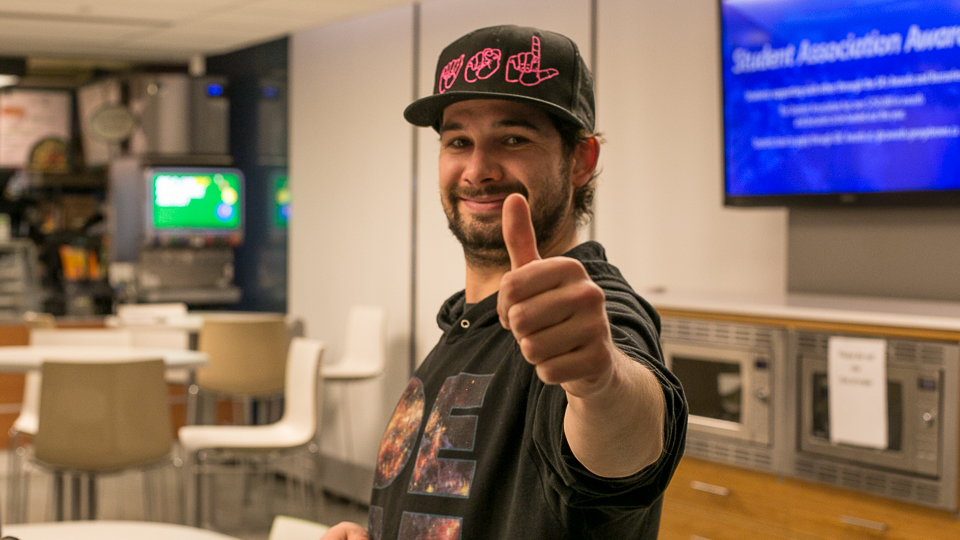New degree opens opportunities in ASL research in Canada
As the first term of the new bachelors degree of interpretation American Sign Language (ASL)– English at George Brown College drew to a close in December, students and professors couldn’t be more pleased.
“It’s a lot of fun so far,” wrote Paul Bourgeois, one of two Deaf students enrolled in the ASL interpretation degree, via email to The Dialog in December. “But I have an ominous feeling it’s about to get a lot harder next semester. That’s okay though, I love a good challenge. Bring it on!”
Bourgeois said the program provides him with an opportunity to continue his education in ASL, which is a huge part of his Deaf identity.
Having grown up in a Deaf family and utilized many ASL interpreters through the years, Bourgeois said he felt he could identify with the Deaf consumer.
“A Deaf job for life is pretty sweet to me,” said Bourgeois, who wants to start an ASL media consulting company and provide job opportunities for Deaf community members. He is already considering going to Europe for a masters degree in sign language interpreting.
“I’d love to travel the world, meet different Deaf communities and learn their sign languages, I’ve never been overseas.” said Bourgeois “My possibilities really are endless.”
Corene Kennedy and Rhondda Reynolds are professors and co-coordinators of the program. They said they are extremely pleased with the turnout of students so far. Now that interpretation of ASL is officially a degree program, Kennedy said that she expects enrolment to grow.
This four-year program was designed with similar course work to its diploma counterpart with more subjects added to offer the opportunity of research in the future for students who take this program.
With the program focusing on presentation, receptive, production and research skills, Kennedy and Reynolds said they are happy that the program will help build the skills so more research work into ASL and interpretation can happen in Canada.
Also, previously Canadian interpreters had trouble with employment in the United States as many positions required a bachelor’s degree, which most Canadian interpreters don’t have.
Timothy Keslick, a hearing student from the first semester, said that it is an intimidating but an exciting time for all the students as they have the chance to carve out their own legacy, but also have to live up to the expectations as the first cohort.
Keslick said working with Deaf students was “a really cool experience to journey with them. They’ll be the first two Deaf interpreters in Canada with a bachelor’s degree. While we can have all the sympathy and goodwill to be great interpreters, they have lived this journey and it is a great learning experience.”
CORRECTION: A previous version of this article implied research work in ASL was not currently happening in Canada. In fact, the University of Manitoba has been conducting research around ASL for decades. The Dialog regrets the error.


